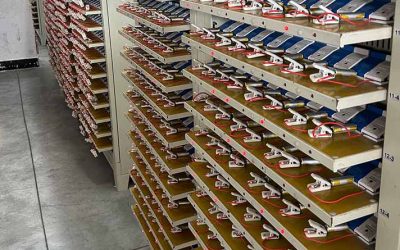Choosing between lithium-ion (Li-ion) and lithium polymer (LiPo) batteries depends on the specific application and requirements. Here’s a summary of the strengths and considerations for each type:
Lithium-Ion (Li-ion) Batteries:
- Energy Density: Li-ion batteries typically have slightly higher energy density compared to LiPo batteries. This means they can store more energy in the same volume or weight.
- Form Factor: They usually come in a more rigid, standardized form factor due to their metal or hard plastic casing. This can limit design flexibility in some applications.
- Performance: Li-ion batteries are well-known for their stable performance and reliability over long periods of use. They are widely used in applications ranging from consumer electronics to electric vehicles and energy storage systems.
- Safety: Li-ion batteries have a long-established safety record when handled properly. They are generally considered safe for use in a variety of devices and applications.
Lithium Polymer (LiPo) Batteries:
- Flexibility: LiPo batteries are more flexible in terms of shape and size due to their pouch-like packaging. This makes them suitable for applications where compactness and custom form factors are important.
- Performance under Load: They can handle higher discharge rates compared to traditional cylindrical Li-ion batteries. This makes them suitable for devices that require bursts of power, such as RC vehicles, drones, and high-performance electronics.
- Weight: LiPo batteries tend to be lighter than equivalent Li-ion batteries of the same capacity, which is advantageous in weight-sensitive applications.
- Cost: LiPo batteries may be slightly more expensive than Li-ion batteries due to their specialized manufacturing processes and flexibility.
Choosing the Best Option:
- For Consumer Electronics: Li-ion batteries are commonly used due to their stable performance, energy density, and established safety record.
- For Portable Devices and Wearables: LiPo batteries are often preferred due to their lightweight and flexible packaging, which allows for thinner and more customized designs.
- For High-Performance Applications: LiPo batteries excel in applications requiring high discharge rates and flexibility in design, such as drones, RC vehicles, and high-end electronic gadgets.
In conclusion, the choice between lithium-ion and lithium polymer batteries depends on factors such as energy density requirements, form factor constraints, performance under load, and specific application needs. Both types have their advantages, and the decision should be based on optimizing performance, safety, and efficiency for the intended use case.

